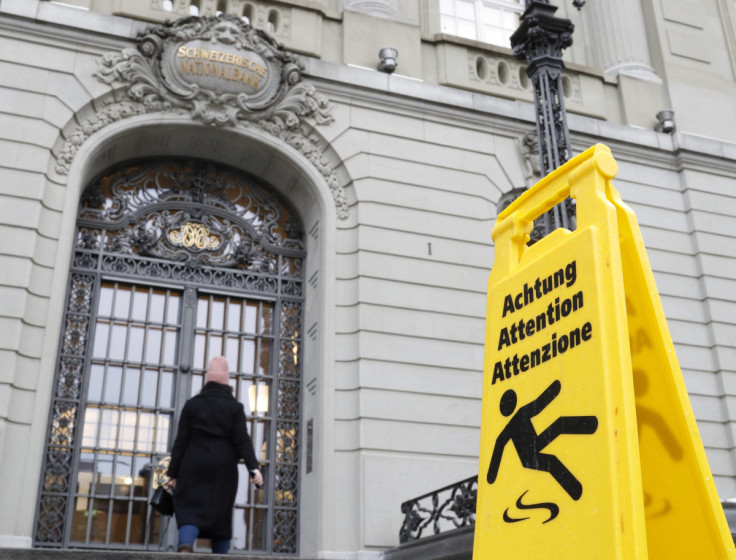Swiss National Bank Hints At Further Rate Hikes Ahead

Swiss National Bank Chairman Thomas Jordan said it was too early to "sound the all-clear" on high inflation after the central bank hiked interest rates on Thursday and hinted further increases could follow.
The SNB raised its policy interest rate by 50 basis points to 1% - the central bank's third hike this year as it stepped up its campaign to dampen inflation.
Although Swiss inflation plateaued at 3% in November, it remains elevated by the country's own standards and outside the SNB's price stability goal of annual increases of 0-2%.
"Inflation has declined somewhat since August," Jordan told reporters in Bern. "While this development is welcome, it is still too early to sound the all-clear.
"It cannot be ruled out that further increases will be necessary to ensure price stability."
The rate increase, which comes as other central banks also tighten policy, took Swiss interest rates to their highest level since the global financial crisis 14 years ago.
The 50 basis point increase was in line with the majority of economist forecasts in a Reuters poll.
Karsten Junius, an economist at J.Safra Sarasin, said the wording was as much forward guidance as could be expected from the SNB, adding he expected another 50 basis point hike in March before rates eventually reach 2% in the middle of next year.
"The wording of the statement might be a tad more hawkish than the market might have expected as there is absolutely no indication that the SNB could pause or slow down its rate hikes," Junius said.
The SNB had already raised rates in June and September after keeping them frozen at minus 0.75% for seven years as it fought the appreciation of the Swiss franc.
The central bank has switched focus to tackle resurgent inflation.
SNB officials had been vocal in recent weeks about the likelihood of rate increases, with Jordan saying last month he was ready to take "all measures necessary" to bring inflation down.
Other central banks have also been increasing borrowing costs to stifle inflation caused by surging energy prices following Russia's invasion of Ukraine and disrupted supply chains still recovering from the coronavirus pandemic.
The U.S. Federal Reserve raised its interest rates by half a percentage point on Wednesday and projected at least an additional 75 basis points of hikes by the end of 2023.
The European Central Bank is expected to increase its deposit rate by half a percentage point later on Thursday, according to a Reuters poll, while the Bank of England is also forecast to add 50 basis points to its Bank Rate.
In its latest forecast on Thursday, the SNB said it expected inflation rates of 2.9% in 2022, 2.4% in 2023 and 1.8% in 2024.
Inflation was then expected to rise again, to 2.1% in the third quarter of 2025, the central bank said - above its price stability goal.
© Copyright Thomson Reuters 2024. All rights reserved.




















